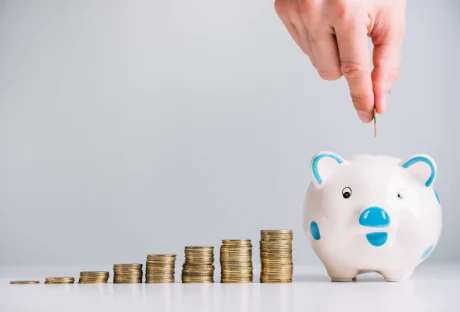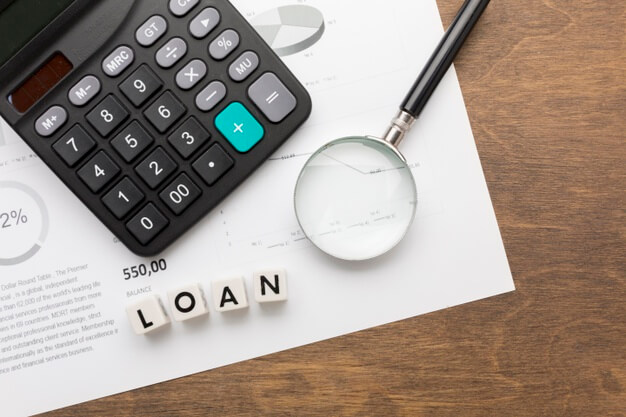Car finance allows drivers to spread the cost of a new or used car into affordable monthly payments. By borrowing money from a lender, drivers can purchase a car and pay the lender back in monthly installments until the end of the agreed term. Negative equity is a term you may hear often with car finance, and for many drivers, it is best to avoid it. Find out how you can ensure you don’t end up with negative equity and what to do next if you find yourself in this situation.
What Is Negative Equity?
In car finance, negative equity is when you owe more on your loan than your car is worth. Negative equity can be known as outstanding car finance or an upside-down loan which means if you sold your car to clear the loan, you still wouldn’t have been able to pay the balance off.
For example, if your settlement figure was £6,000 and your car was worth £4,000, you would still owe the finance company £2,000. Usually, negative equity happens when the value of your car drops quickly during your agreement. This is especially common with brand-new cars, as they can lose up to 50% of their value in the first few years of ownership.
Here, if you want to trade in your car but have negative equity, you will need to repay the loan amount before you take a new loan to purchase a new vehicle.
What Are The Reasons For Negative Equity?

Basically, a negative equity situation happens for a variety of reasons. For instance, an upside-down situation in regard to a car loan can happen due to the following reasons:
- You might have a loan for a longer term. Apart from that, your vehicle has also gone through depreciation since your purchase.
- There is a no-money-down auto loan in your case, or you might have paid more than the sticker price of the vehicle due to the inclusion of add-ons.
- You might have purchased an expensive vehicle, which might not have the same value that you expected during the purchase.
- Your debt regarding the loan is of a high rate of interest. Hence, most of the money that you are paying is going to the interest as compared to the principal.
Depreciation is also a major factor in this case. Basically, the term rate of depreciation shows how fast an asset loses its value. Generally, a car loses almost 20% of its value in the first year itself. Furthermore, the process of depreciation continues to happen in the following years until the car fully loses its value.
Why Is Negative Equity Problematic?
Negative equity within your car finance deal can be an issue because you will still owe the lender money even if you sell your car. In some cases, you may not be able to sell the car, too. If you find your circumstances have changed and you can’t afford to carry on with the loan, you may be charged additional fees for missed or late payments, and it can lead to much more serious financial consequences.
How Do You Avoid Negative Equity In The First Place?

Before you take out a car finance deal, consider these factors below to help prevent negative equity from occurring:
- Only Borrow What You Can Afford. If you’re in a position to buy a new car on finance, it’s important you use a car payment calculator first to see how your loan could look and make sure it is affordable. This may mean choosing a used car over a brand-new car, as older cars usually have already depreciated at their fastest rate in previous years.
- Put Down A Larger Deposit. A larger deposit contribution at the start of your finance agreement can help to reduce your loan amount. A smaller loan can help to reduce the risk of your car being worth less than how much you owe.
- Choose A Slower Depreciating Car. If you want to avoid negative equity, you could consider choosing a car that depreciates at a slower rate. Cars that hold their value will be less likely to leave you out of pocket at the end of your car finance deal.
- Make Higher Payments. Negative equity can often be associated with PCP deals as they offer low payments and a large balloon payment at the end of the deal. Opting for a deal such as a hire purchase, which aims to pay off the value of the car at the end of the deal and has higher monthly payments, can help avoid any outstanding finance.
How Do You Get Out Of Negative Equity?

There are different ways of getting out of negative equity. However, based on your current situation, you will need to choose which way works the best for you. Basically, you will need to choose the one that goes with your budget. Furthermore, it also depends on whether you want to keep the vehicle or not.
Hence, to get out of negative equity, make sure you do the following:
1. Start By Paying Off The Loan
The most obvious way to pay off your negative equity is to accelerate your payment. Here, the faster you pay your loan off, the sooner you will be able to deal with the debt. One of the best ways of paying off the loan is to pay extra on the principal part. Apart from that, you can also consider paying a lump-sum amount beforehand to avoid paying interest for a longer period.
Hence, you must consider reviewing your budget and savings from time to time to pay off your existing debt.
2. Loan Refinancing
Here, you might consider taking out a new loan to pay off your existing debt. This will help you in getting out of your upside-down car loan faster. This works even better if you can avail of a new loan with a lower rate of interest.
3. Selling The Vehicle
If you do not need the vehicle, you can consider selling off the vehicle. This way, you can get a lump sum of cash, which will allow you to pay off the loan. Furthermore, if you sell the vehicle to a private buyer, you will have the option to negotiate the price further. This will enable you to get more cash, which will further help you to pay off the negative equity.
4. Surrendering The Vehicle
If you handle the vehicle to the lender, you can get out of the negative equity, too. In addition to that, if you do a voluntary surrender, you will be more likely to get out of the negative equity.
Summing Up: Getting Out Of Negative Equity
If you’ve not been able to avoid negative equity and need to know how to get yourself out of it, follow the top tips below:
- If you can still afford your current car finance payments, it is recommended you stick with the deal you have at the moment. In many cases, your deal will balance out over the duration of the loan, and the negative equity should be settled by the time you reach the final payment.
- You could pay off your negative equity by paying the lender in cash.
- You can hand your car back to the lender through Voluntary Termination. If you’ve paid half of your agreement off, you could return the car to the lender. It’s always best to speak with your lender first, though, to see how they could help you.
Do you have any more ideas to add? Consider sharing in the comment section below.
Read More:






















